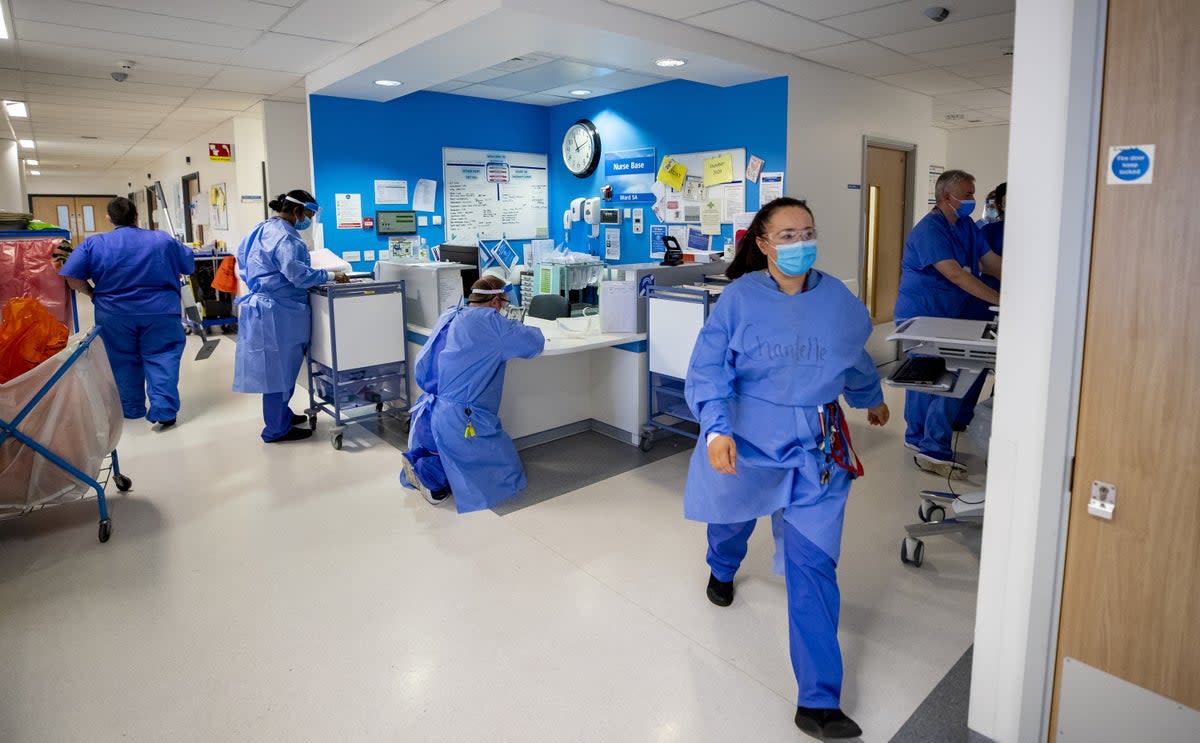Chronic shortage of sickle cell nurses putting patients at risk, damning report warns

Sickle cell patients are being put at risk because of a chronic shortage of specialist nurses to treat them, a damning new report has found.
The Difference Between Life and Death, a new study by the Sickle Cell Society, found that there are not enough sickle cell workers to deliver a good standard of care.
One patient called Abi Adeturinmo told researchers that previous traumatic experiences caused by delays in receiving pain relief medication and poor care meant she “tries not to go to the hospital when in sickle cell crisis unless it is life-threatening”.
Another patient, Araba Mensah, whose daughter has sickle cell disorder, said there was a lack of “hands-on” nursing, and said patients who have difficulties feeding themselves or with personal hygiene were “left to suffer unattended”.
John James, CEO of the Sickle Cell Society, said: “While there are undoubtedly workforce challenges across all parts of the health system, the evidence in this report suggests that sickle cell is disproportionately impacted as a result of the legacy of neglect of sickle cell care.
“On behalf of everyone affected by sickle cell, we are urging NHS England to take action now to ensure all sickle cell patients have access to the specialist care they are entitled to.”
Sickle cell disease is an inherited, long term and potentially life-threatening condition that mainly affects Black people. It causes debilitating pain and multiple problems such as severe infections, strokes, chronic fatigue, delayed growth, and progressive tissue and organ damage.
Approximately 17,500 people in England are living with sickle cell disorder.
The report follows a 2021 all-party parliamentary group (APPG) on sickle cell and thalassaemia inquiry into sickle cell care which found “serious care failings” in acute services and evidence of attitudes underpinned by racism.

The inquiry also reported “chronic under-staffing”, with fears that the problem was on course to get worse. The APPG inquiry also found that sickle cell care failings have led to patient deaths and that “near misses” are not uncommon.
Among the cases reviewed were the tragic deaths of sickle cell patients Evan Nathan Smith and Tyrone Airey, both of whose deaths were found to be avoidable and a result of oversights by insufficiently trained healthcare professionals.
Previously, The Independent revealed that only half of healthcare professionals feel they have sufficient tools to manage the long-term damage that sickle cell disease brings.
Specialist sickle cell and thalassaemia nurses undertake a wide range of vital roles for sickle cell patients including running and assisting with patient clinics, supporting people presenting at emergency departments in severe pain, also known as “sickle crisis”, and educating and advising colleagues who may not have experience of treating the condition.
The Difference Between Life and Death report highlights that the shortage of specialist sickle cell nurses has a profound impact on patients and their carers, but also on the specialist nurses and their clinical colleagues who are grappling with disproportionate responsibilities.
In some instances, the consequences of the shortage of specialist staff are deadly.
“The current level of nurse staffing could mean the difference between life and death for sickle cell patients,” a specialist nurse told researchers.

Janet Daby, chair of the APPG on sickle cell and thalassaemia, added: “Dedicated, expert specialist sickle cell nurses play an absolutely crucial role in delivering care to sickle cell patients.
“It is clear that there remains an insufficient number of specialist sickle cell nurses to meet the level required to deliver a routinely good standard of care to patients.”
In light of the findings published, the Sickle Cell Society is calling for the sickle cell workforce to be an urgent priority and given particular attention as part of the implementation of the NHS Long Term Workforce Plan.
An NHS spokesperson said: “Providing the best treatment and support for people living with sickle cell disease – which can be an extremely debilitating condition – remains a priority for the NHS, and we have recently established 10 new centres for sickle cell disease across the country, including dozens of specialist teams.
“The NHS continues to promote e-learning to support healthcare professionals to improve their knowledge of the condition, how to spot a crisis and the healthcare inequalities facing patients.”
The Independent has the Department for Health and Social Care for comment.

 Yahoo News
Yahoo News 
